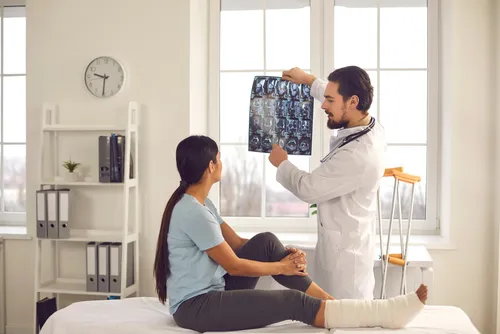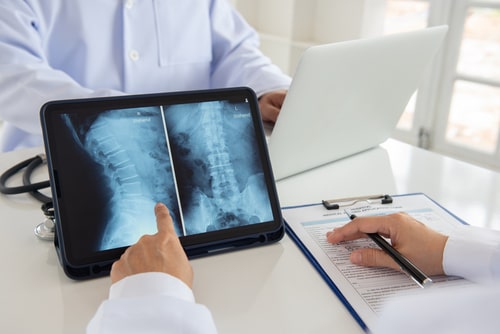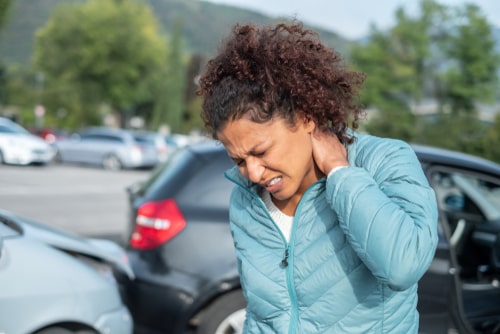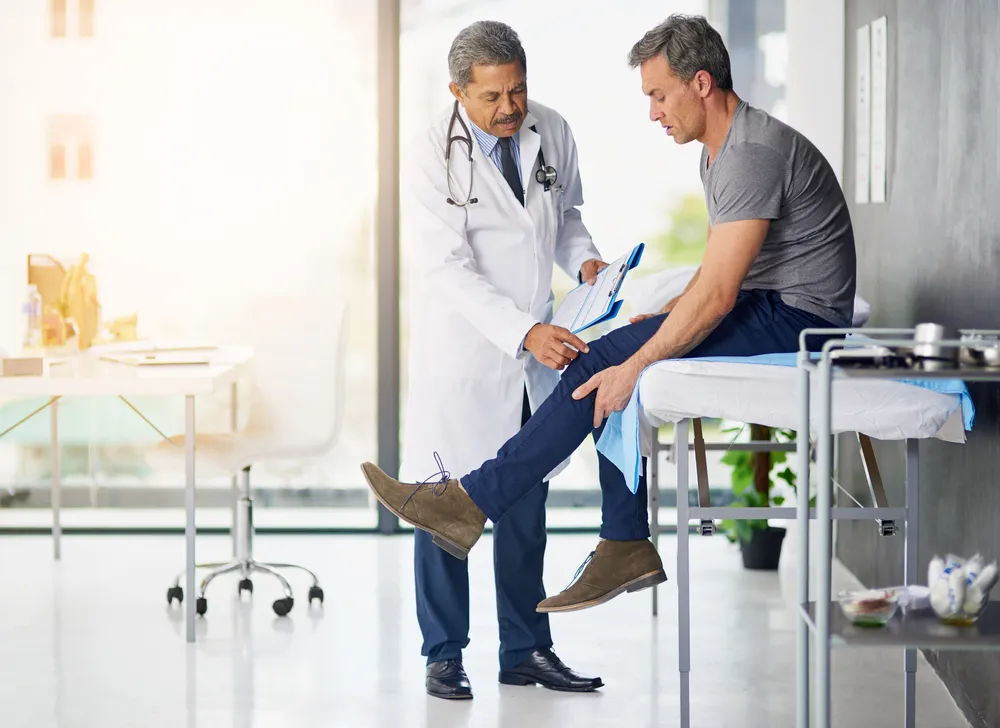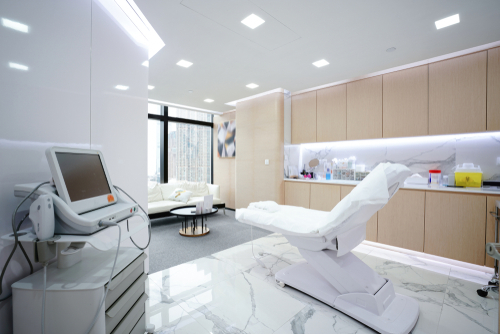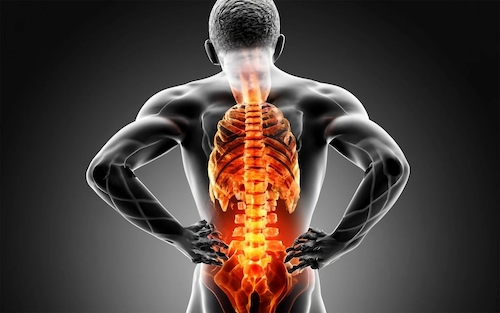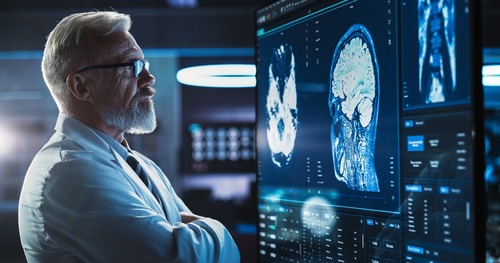Trusted Car Accident Doctors in Columbus, Georgia – Specialized Medical Care for Car Accident Injuries
If you’ve been injured in a car accident in Columbus, GA, finding the right doctor to address your injuries is critical for a successful recovery. Whether you’ve suffered soft tissue injuries, broken bones, neck injuries, spinal cord damage, or musculoskeletal injuries, it’s essential to seek medical attention immediately to prevent complications. Many accident victims delay care, not realizing that even minor aches can signal a more serious traumatic injury, including brain and spinal cord damage or peripheral nervous system trauma.
At Georgia Spine & Orthopaedics, our experienced car accident doctors, including orthopedic specialists, pain management doctors, and physical therapists, are here to help guide you through the recovery process. We offer comprehensive medical treatment plans tailored to specific injuries sustained in automobile accidents and car wrecks—all designed to alleviate pain and restore function. Whether you need pain management, physical therapy, or care from a treating physician who understands personal injury cases, our team is equipped to help.
If you’ve been to the emergency room doctor or ER doctor and are unsure what to do next, our accident doctors will provide the proper treatment and coordinate with insurance companies to handle insurance claims, medical payments, personal injury protection (PIP), and third-party billing, helping you minimize out of pocket costs. We can also bill auto insurance companies directly and work closely with your primary care physician or primary care doctor to ensure continuity of care.
Don’t wait—seek medical attention today to prevent chronic pain and complications from accident injuries. If you’re searching for an orthopedic doctor, chiropractor, or pain management specialists to handle injuries resulting from a car crash or auto accident, contact Georgia Spine & Orthopaedics. Call 678-929-4494 to schedule an appointment with a trusted car accident doctor serving Columbus, Georgia, and nearby areas.
What To Tell Your Doctor After Car Accident
Your recovery journey and timeline hinges on being honest with your doctor. You may be asked a lot of questions during your initial visit to help establish your condition and the extent of your injuries.
Being honest and providing thorough information will ensure they have enough information to conduct the necessary diagnosis and create a personalized treatment plan.
Be ready to be forthcoming with information on the following topics.
Accident Details
With many years of experience providing car accident treatment, doctors understand the intricacies of being involved in such accidents. Providing them with specific information about the collision enables them to better understand the nature of your injuries and potential problems that could originate from the crash.
During your initial visit, it’s important to share important details about the accident, including:
- Your seating position in the vehicle.
- Your posture at the time of impact.
- Whether or not you were wearing a seatbelt.
- Whether you were a pedestrian, passenger, driver, or cyclist in the crash.
It’s worth noting that you should share these details without fear of judgment. It’s all about making sure that our doctors have the information to make an accurate diagnosis.
This is very important considering certain injuries may not produce immediate symptoms, so every detail helps in our assessment. Even if recalling the incident feels overwhelming, always try to provide as much information as possible.
How You Felt Following the Accident
Immediately after the collision, there’s a surge of adrenaline in your body that can mask injury symptoms, delaying their onset. It’s common for injured drivers and passengers to only notice pain, soreness, or other symptoms after 24 hours.
Before your appointment, take note of when symptoms first emerged. Documenting the type, severity, and duration of symptoms can be beneficial.
For instance, you might experience headaches accompanied by sensitivity to light, noise, or smells, neck and shoulder discomfort, and other bodily aches or soreness. Keeping track of these symptoms will help your consultations with our specialists during your appointment.
Delayed-Onset Symptoms
The absence of immediate symptoms within 24 hours does not rule out the presence of injuries. Some conditions take time to manifest warning signs.
Common car accident injuries with delayed symptoms include:
- Traumatic head and brain injuries
- Neck and back injuries
- Spinal trauma
- Whiplash
- Sprains
Some symptoms of head or brain injuries might not be immediately apparent but could include fatigue, sleep disturbances, memory issues, persistent pain in the shoulders, back, or neck, chronic headaches, and changes in behavior or personality.
Additionally, mental health conditions such as post-traumatic stress disorder (PTSD) or anxiety may arise following a traumatic accident. If you’re experiencing any of these symptoms, it’s crucial to communicate them to your doctor, even if they develop days or weeks after the accident.
Staying attentive to any changes in your body and providing detailed information to your doctors, will enable our specialists to provide the best possible care for you, and ensure you make a full recovery.
What Do Doctors Check After A Car Accident
When you visit the Georgia Spine & Orthopaedics clinic, you can be sure that you’re in the hands of knowledgeable and compassionate staff. Depending on the severity and nature of your injuries, we may ask you questions and perform diagnostic tests for an official diagnosis.
The initial assessment with a doctor will typically include:
- Discuss your medical history and your current condition.
- Questions about the circumstances of your accident.
- A physical exam that may include following instructions and doing various motions.
- Establish your lifestyle and habits, along with any existing medical concerns or conditions.
- Diagnostic tests like MRI and CT scans.
Generally speaking, the sooner you receive a professional medical diagnosis, the sooner you’ll be able to get back to living life on your terms. Delaying treatment could worsen the condition and/or delay your recovery timeline.
While your doctor can suggest a recovery period for your injuries, they can’t guarantee an exact timeline. But you can expect your doctor to give you an idea of what your healing and recovery journey will look like.
Types of Car Accident Injuries
Some injuries are more common in car accidents than others. When you visit our clinic, our team will be looking for any symptoms, signs, and other indicators of injuries.
While each patient is unique, there are several things we look at to diagnose all kinds of injuries. The most common types of car accident injuries include:
External Injuries
In the aftermath of an accident, visible external injuries may include cuts, bruises, burns, and road rash. While these injuries may seem straightforward, it’s important to openly discuss their severity and any associated pain you’re feeling with your doctor.
Fractures
Broken bones, often resulting from impact, are quite common after accidents. Some fractures, especially small ones, may not be immediately apparent, requiring X-rays or other imaging tests for accurate diagnosis.
Soft Tissue Injuries, including Whiplash
Soft tissue injuries affect tendons, ligaments, and muscles, and are prevalent in accidents due to sudden, forceful movements. Whiplash, a common soft tissue injury, may manifest as neck pain or headaches following the accident.
If you feel any of these symptoms, you should seek immediate medical attention.
Brain Injuries
Head impact during accidents can lead to traumatic brain injuries (TBIs), ranging from concussions to more severe conditions. Even without direct impact, the brain may experience trauma from the force of the accident.
Cognitive tests may help assess any potential impact on brain function.
Spinal Injuries
The intricate structure of the spine makes it vulnerable to various injuries, such as herniated discs, where the soft gel-like discs between vertebrae are displaced or ruptured.
While not always immediately apparent, a thorough examination by an experienced doctor or chiropractor is crucial to evaluating spinal health and detecting any injuries.
What Our Team Can Do to Help
Our highly trained and experienced car accident doctors, neurologists, orthopedists, chiropractors, therapists, and nurses offer comprehensive care for a wide variety of injuries and conditions.
Depending on the severity and nature of your injury, our team will develop a personalized treatment plan to ensure that you can make a full recovery.
If you’re in pain, our doctors will suggest non-invasive treatment methods like rest and over-the-counter painkillers, which are safe and not habit-forming, to address common forms of post-accident pain like muscle cramps and headaches.
For injuries like bruises, lacerations, fractures, and burns, we may prescribe you antibiotics to protect you from developing an infection.
Our treatments include:
- Chiropractic care
- Trigger point and joint injections
- Physiotherapy
- Auto injury rehabilitation
- Regenerative medicine
- Non-surgical treatment
- Spinal decompression
- Massage therapy
We can work with medical liens, which means that we can wait until your case is settled before we ask for payment. We can work with your attorney or help you find a good one if that is what is needed for your case.
When Should You Go To The Hospital After A Car Accident?
As a rule of thumb, it’s best to seek medical care as soon as possible after the accident. This applies even if the injuries don’t seem serious. However, most insurance companies expect car accident victims to seek medical attention within 72 hours after an accident.
If you delay in seeking medical care, you might risk developing long-term complications, including chronic pain and limited mobility. Moreover, insurance companies and the party at fault for the accident may use delayed treatment as evidence for injuries not being as severe as you claim.
Georgia Spine & Orthopaedics offers same-day appointments, diagnosis, and treatment, conveniently in one facility. We can help you get the urgent care you need immediately after an accident in Columbus, GA, and support you throughout your journey toward a full recovery.
Get an Experienced Car Accident Doctor
Our Columbus, Georgia car accident doctors at Georgia Spine & Orthopaedics are ready to help you recover after a crash. Under our care, you can be sure that you’re working with professionals who understand how to diagnose and treat injuries resulting from car accidents.
General physicians might not be able to tell where to look for clues that could indicate serious injuries. By combining traditional medical techniques, chiropractic care, and orthopedic treatments, our team can deliver highly effective yet non-invasive holistic treatments.
Call 678-929-4494 today to talk to one of our Columbus car accident doctors.
